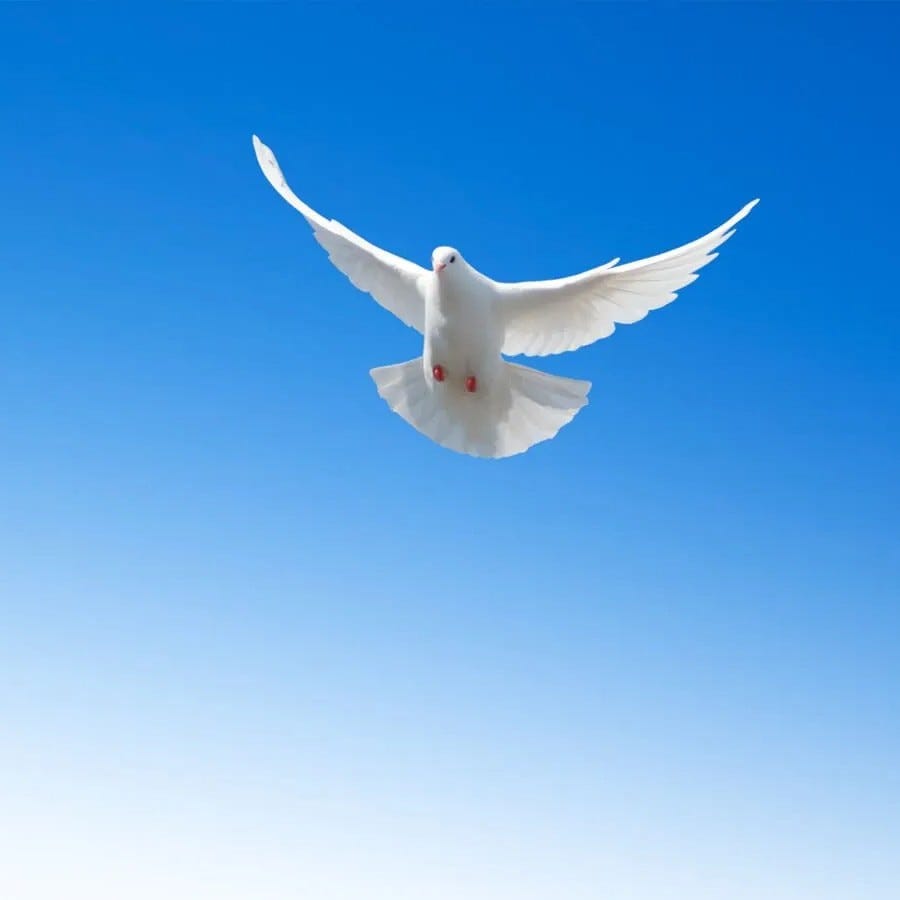There are times when words carry us to the edge of a deeper knowing, and then fall away so that something more subtle, more alive, can be received. This is one of those invitations.
Many have asked, What is the Holy Spirit? Others wonder how it relates to love. These are not questions to be solved, but mysteries to be entered. I offer this reflection not as a definition, but as a doorway.
The Holy Spirit is not an idea to be analyzed but a living presence to be encountered. Across traditions and sacred texts, it appears not as a doctrine, but as movement—breath, wind, fire, whisper. The Hebrew word ruach and the Greek pneuma both speak to this: spirit as breath, invisible yet vital, the unseen force that animates all of life. It is the dynamic presence of the Divine that stirs within, the pulse of awakening that brings clarity where there was confusion, vitality where there was inertia, unity where there was separation.
And yet, the Spirit does not operate apart from love. The Spirit is not love itself—but it is what makes love possible. Think of the Spirit as the source, the voltage, the divine potential coursing through reality. Love is the current that flows from that source. Love is what we see, what we feel, what we embody—but it is the Spirit that energizes, guides, and sustains it.
This distinction matters. Love, on its own, can be confused with attachment, sentimentality, or performance. It can become distorted when it's disconnected from the deeper current. But love that flows from the Spirit is different. It’s steady, free, wise. It’s not about pleasing or grasping. It’s about offering, seeing, responding. It is love that refuses to exclude. It holds pain without collapsing and meets injustice without becoming bitter.
The Spirit awakens this love in us—not through force, but through presence. Through silence, through inner nudges, through what some call intuition and others call grace. You may experience the Spirit as peace in the midst of chaos, as fire in your chest, as the sudden conviction to speak truth, or the quiet impulse to forgive. The Spirit is not always gentle. Sometimes it unsettles. But it always invites you toward what is more real, more whole, more deeply alive.
When you are moved by compassion that surprises even you, that is the Spirit. When you risk vulnerability because something within says, this matters more than comfort, that is the Spirit. When you stand in the face of injustice and do not look away, or sit in the ache of another without fixing or fleeing, the Spirit is there—animating, sustaining, guiding.
This is not exclusive to one tradition or language. The Spirit is not confined by belief. It reveals itself wherever people are open to love’s true form—free of ego, full of humility. It manifests in the wisdom of elders, the courage of the unheard, the longing of the seeker, the quiet integrity of one who simply shows up with kindness again and again.
The Spirit draws us into alignment with something greater than ourselves, and in that alignment, love becomes not only possible but inevitable. Not a task to perform, but a life to embody. This is not the love that demands applause, but the love that heals, includes, and tells the truth.
So when you ask, What is the Holy Spirit?—listen not just for answers, but for the stirring within you. Feel for the voltage. Let it move you, not to merely understand, but to be changed. Let it lead you into the current of love that flows from what is deepest and most enduring.
In the end, the Spirit is the breath of the sacred that makes love real. It is not separate from love, but the reason love matters.
May you learn to trust that presence within you.
With you in the movement…




